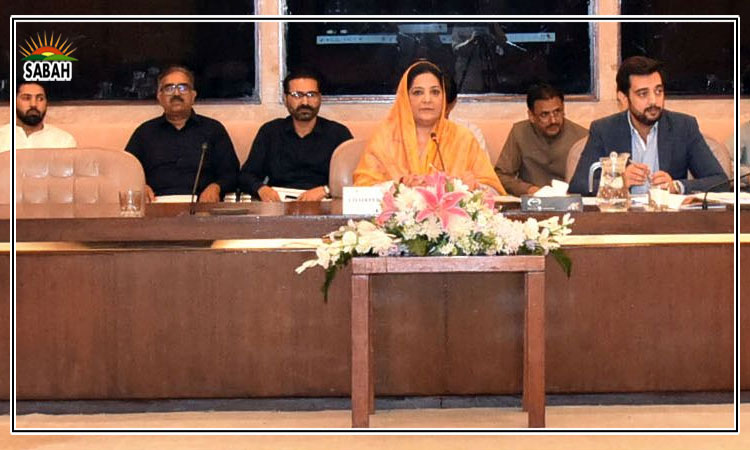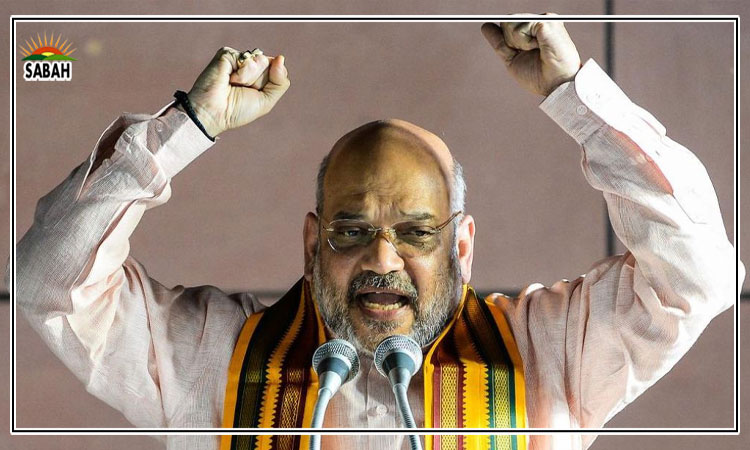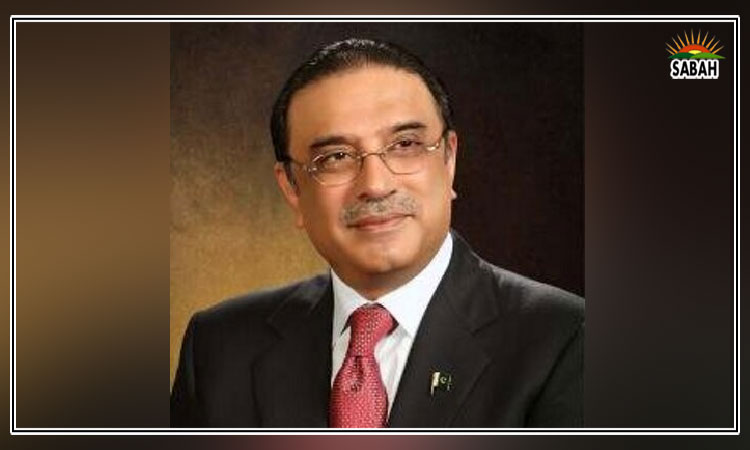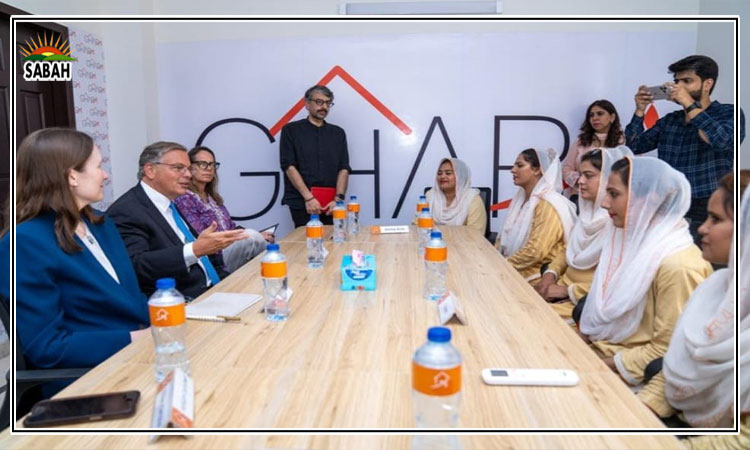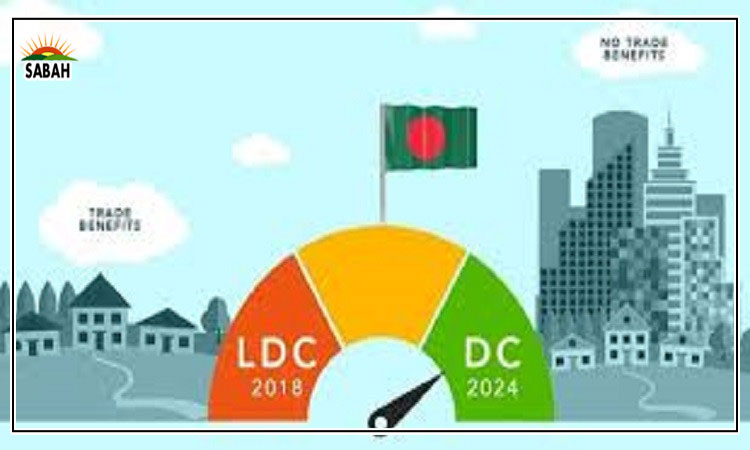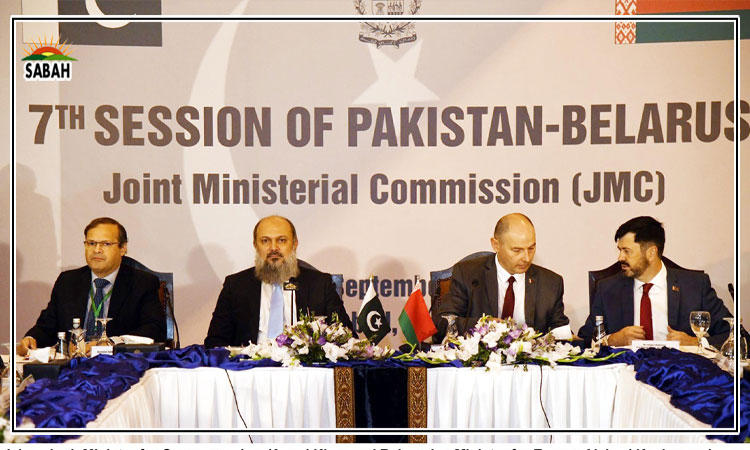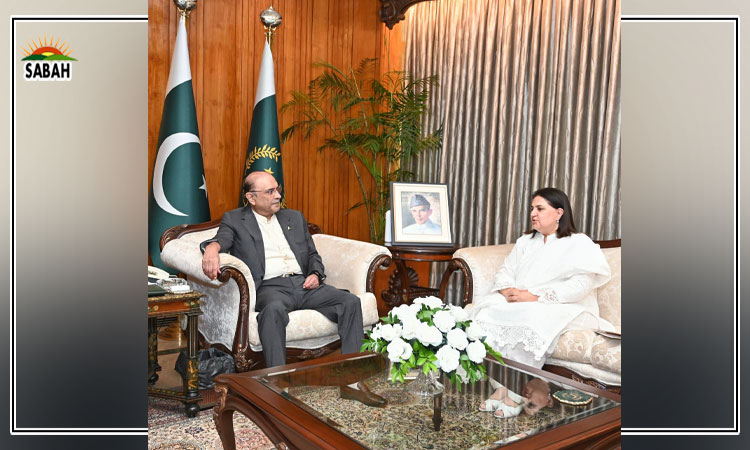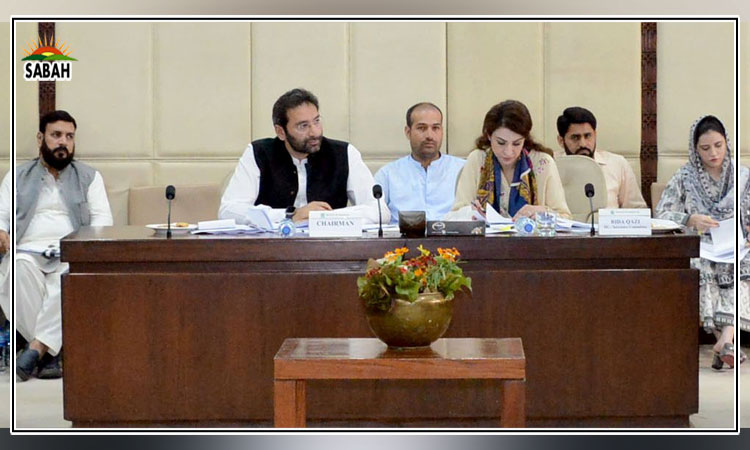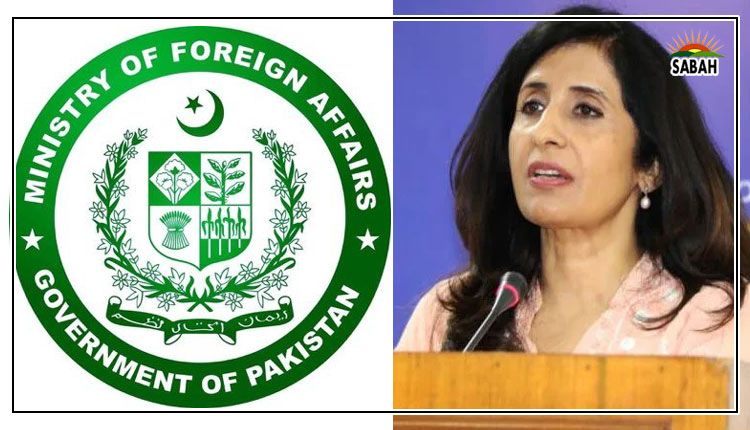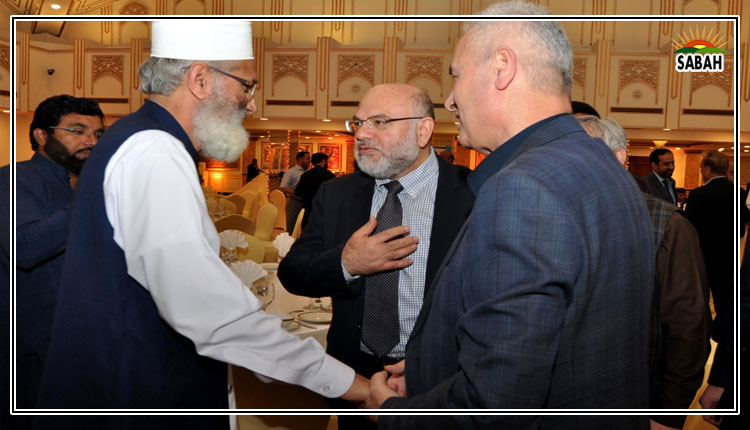In current int’l governance system a significant portion of resources is directed towards wars, conflicts, degradation of humanity rather than their utilization for advancement of mankind: Sirajul Haq
ISLAMABAD, March 21 (SABAH): Jamaat-e-Islami Emir Sirajul Haq has underscored the moral quandaries within the current international governance system, wherein a significant portion of resources is directed towards wars, conflicts, and the degradation of humanity rather than their utilization for the advancement of mankind.
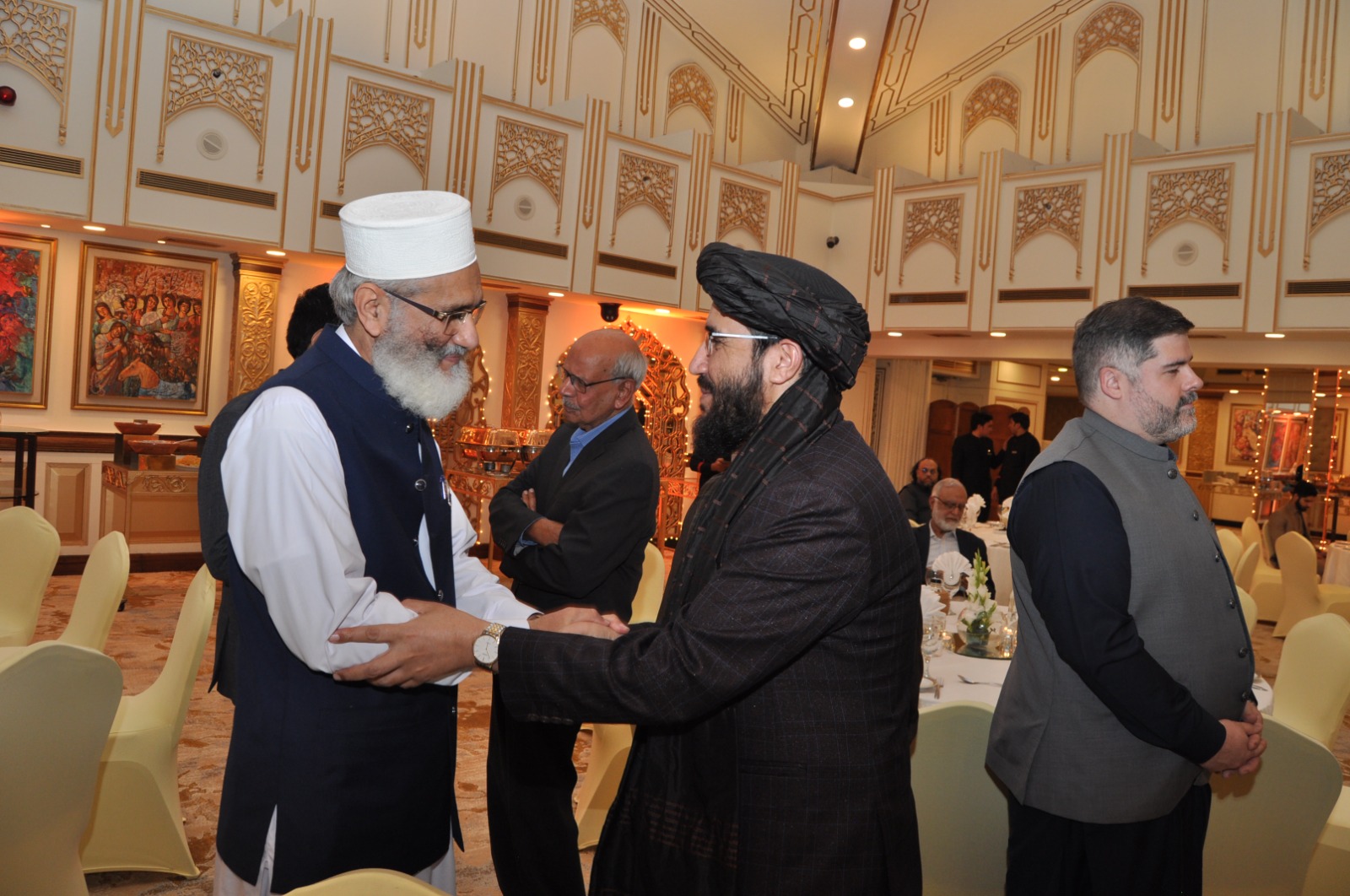
Speaking at an Iftar dinner hosted in honor of diplomats and senior officials from various countries including the US, Britain, Iran, Turkey, Malaysia, Afghanistan, Palestine, Somalia, Iraq, Russia, Japan, Sri Lanka, and others at a local hotel, he expressed disappointment over the failure of the international system to deliver justice to the people of Palestine and Kashmir, despite the clear resolutions passed by the United Nations.
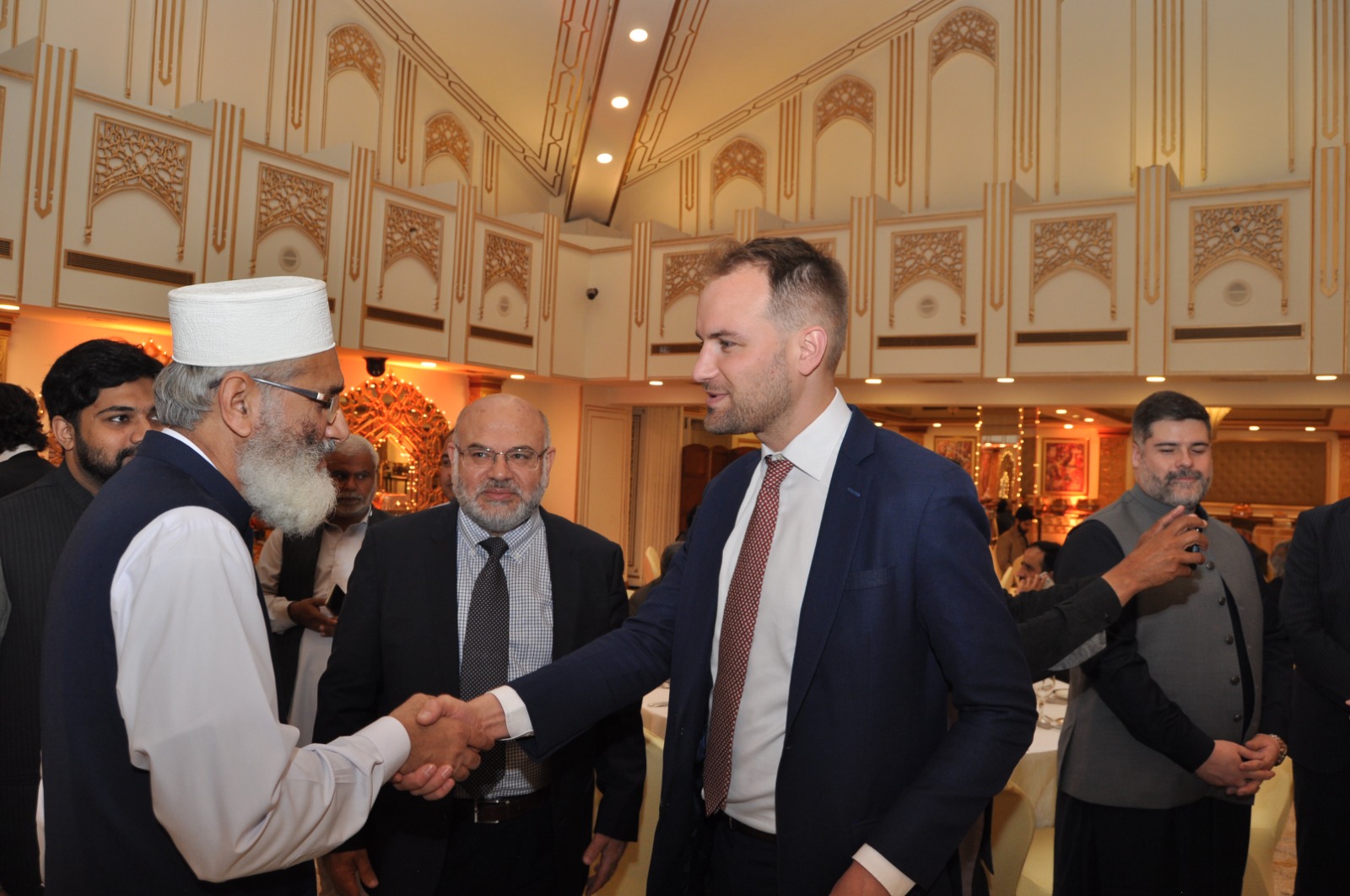
He lamented that the ceasefire efforts in Gaza were hindered by the veto of a single country, despite 13 national votes in favor of it. The event was attended by leaders of Jamaat-e-Islami including Liaqat Baloch, Amirul Azim, Asif Luqman Qazi, Senator Mushahid Hussain Syed, Raja Zafarul Haq, as well as representatives from Hamas, welfare organizations, and civil society.

He thanked the participants and said the month of Ramadan is a month of spiritual cleaning and introspection to strengthen our relationship with God as well as God’s creation. In this month we learn to be more kind and merciful, to be more tolerant and forgiving, and to be more generous and charitable towards the less fortunate.

“Ramadan reminds us that its our common responsibility to try to alleviate poverty and eliminate hunger from this world, and to reach out to those who are deprived of the blessings of life.”

He said that a lot of useful resources go to fuel conflicts and wars. Resources, he said, that could have been used for the welfare of humanity, are in fact used to bring death, devastation and destruction.

He said more people in the world are stricken by acute food insecurity than there were ten years ago. This is despite the much ado and the lip service accorded to food security on international for a, he said.
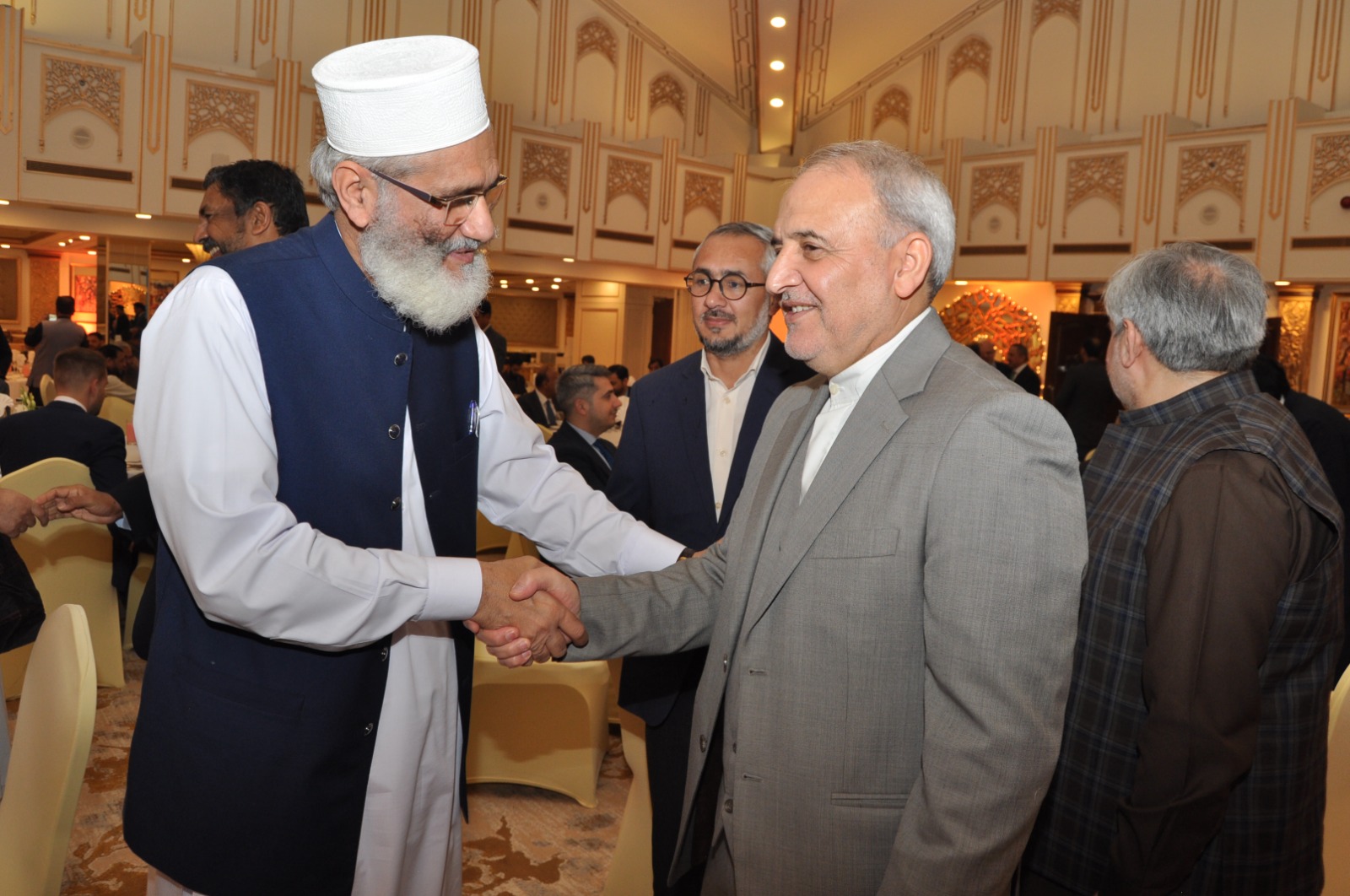
“When the world’s biggest powers want to impose war in a region, we observe that thousands of billions of dollars are allocated to those wars. However, to help the world’s most destitute, even hundreds of millions are hard to fetch.”
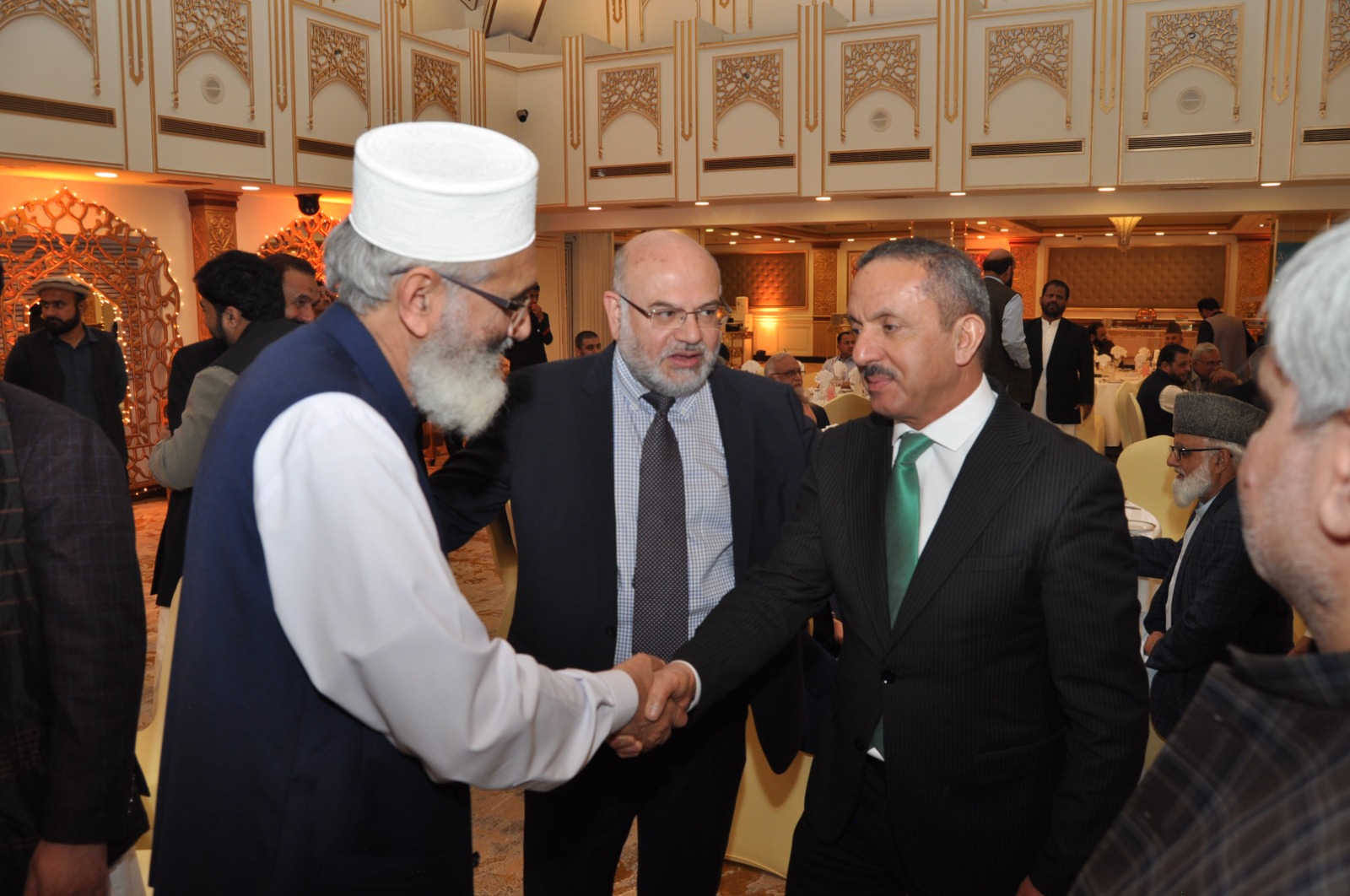
Current global governance system, he said, is devoid of high moral values. Instead of finding solutions to the humanity’s problems, it is bringing more devastation, he said, adding a clear example is the situation prevailing in Gaza today where 2.2 million people were first forced to live under siege in inhumane conditions and for the last five months the defenseless civilian population is subjected to continuous air strikes and indiscriminate artillery shelling.
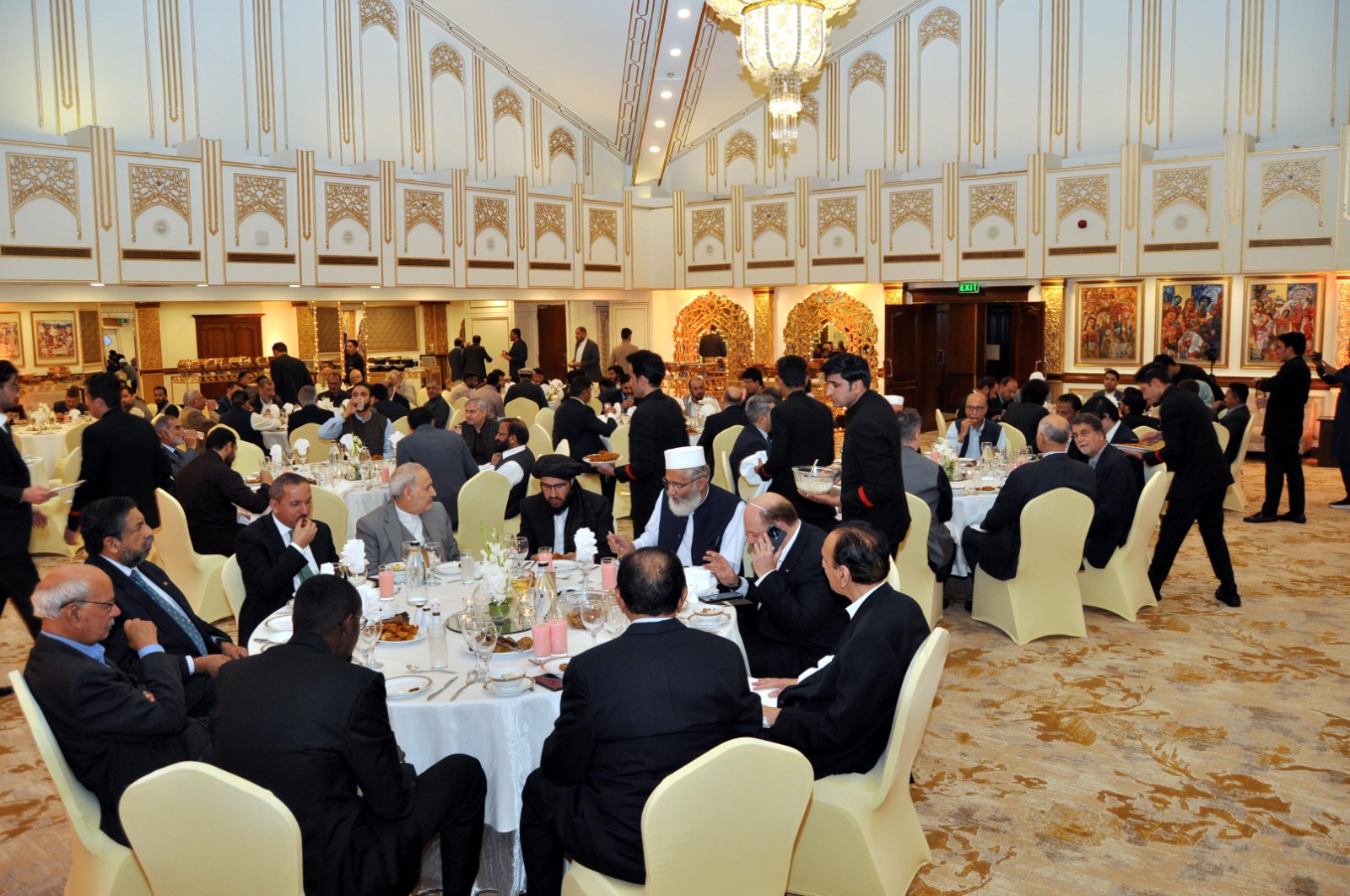
A genocide, he said, is taking place with the world’s most resourceful countries being complicit in it. The global governance is completely handicap to prevent it from happening, he said. Haq said that resolution after resolution in UN Security Council is rendered to failure because of the unjust veto power given to some countries.
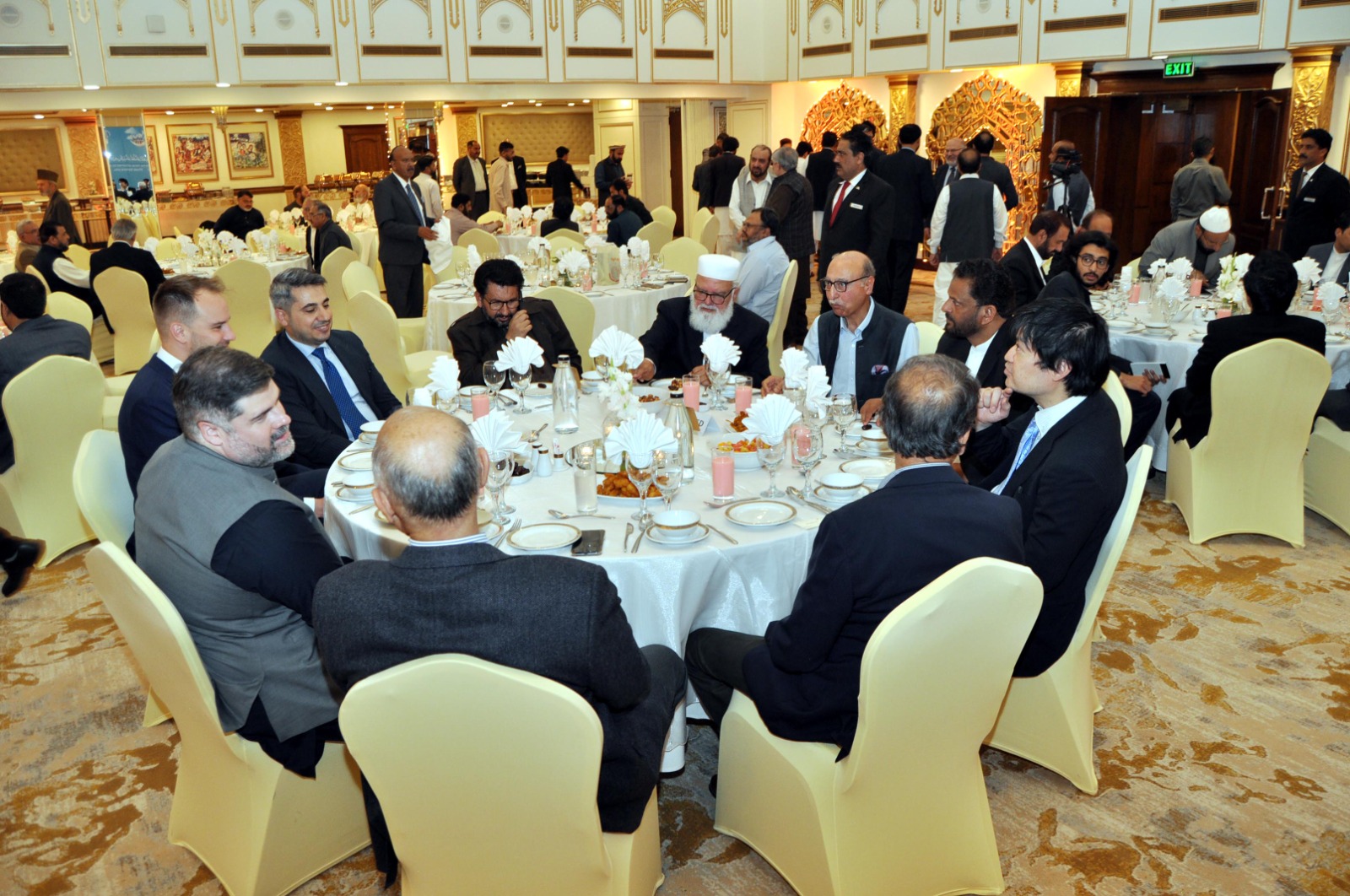
Over 13 countries vote in favor of a ceasefire but only one country has the power to disregard it and deny this chance to be given, he said, adding 153 countries pass resolutions in General Assembly, but their voice does not carry any weight in the current governance system. “Millions of people come out on streets in protest in almost all major cities of the world, but their governments refuse to be influenced.”
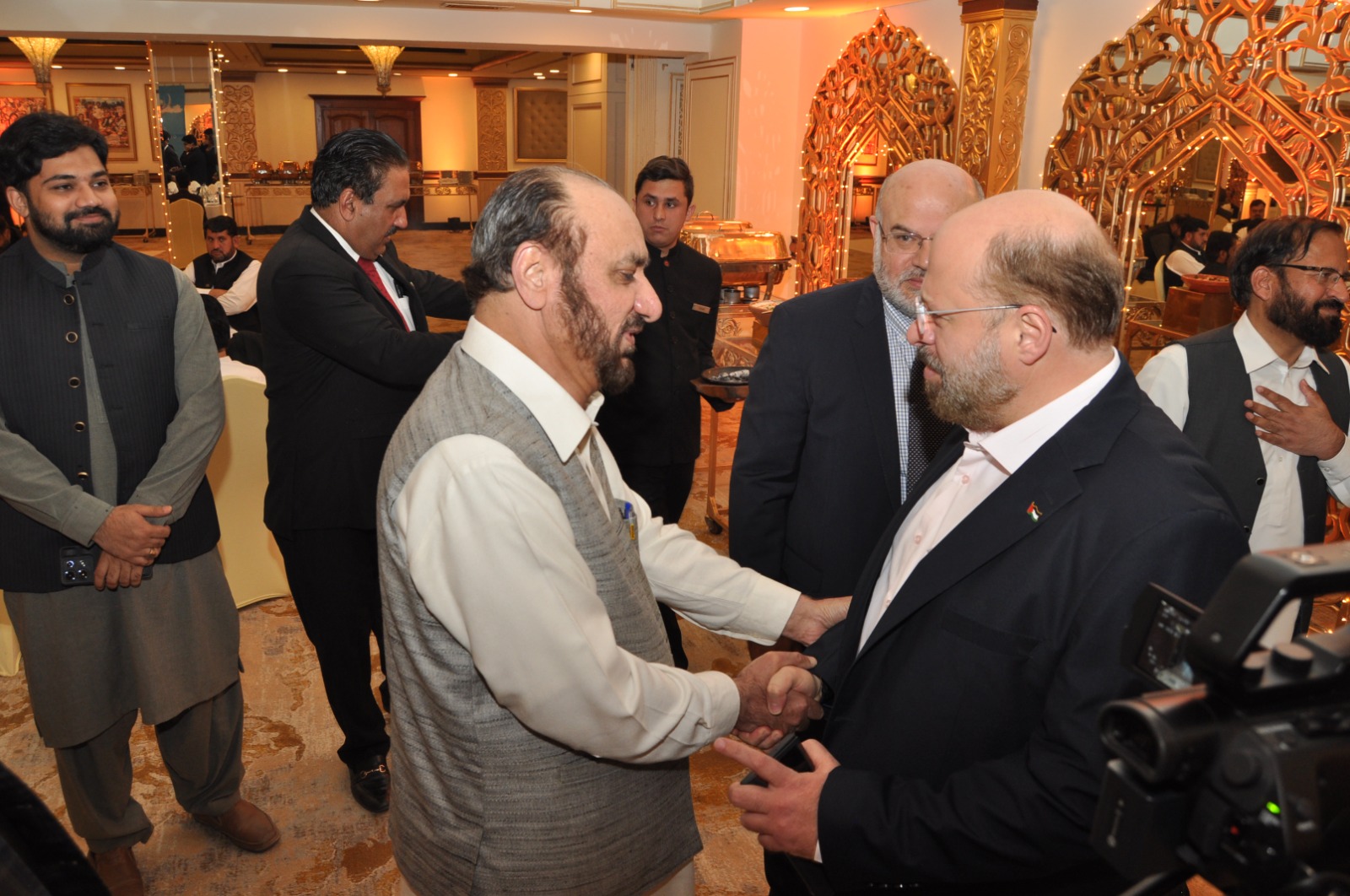
It shows, he added, that current global governance system cannot provide justice to the oppressed peoples anywhere in the world. “The lofty ideals and humane values this governance system was claimed to be based upon, proved in fact to be tools in the hands of big powers to perpetuate their global dominance.
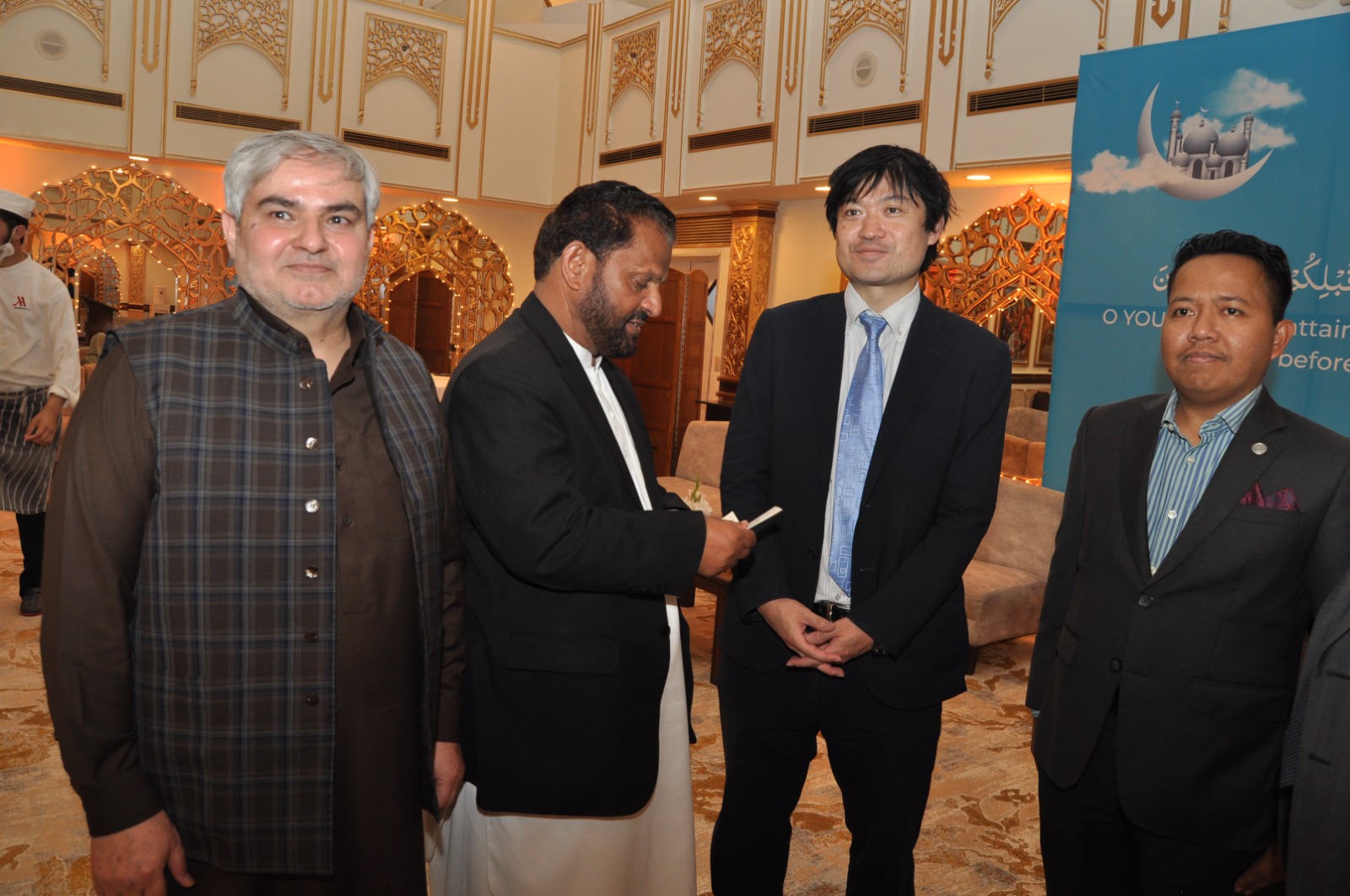
In the case of Jammu and Kashmir, he said, despite the clear resolutions of the UN Security Council, it has failed to provide the right of self-determination to the 20 million the people of Kashmir. Even after 76 years, he said, Kashmir still remains a nuclear flashpoint and a continuous threat to the security of this whole region.
The JI leader said that global security cannot be envisaged if world leadership ignore the principles of justice and fair play. “Every human being deserves to live his or her life in freedom. All of us here in this room represent our respective countries, and can convey this message to their respective governments.”
He said it is our common responsibility to ensure that oppressed peoples anywhere in the world get their freedom from illegal occupation. “We invite all the peace and justice-loving nations to join hands for a more secure and prosperous humanity. We will cooperate with anyone working for these ideals.”
To think about humanity beyond the divisions of race, color, language and creed, he said, it is the leadership’s responsibility and all of us in this room are placed on leadership positions in one form or the other.
He said, “All of us can play a role and every one of us should play that role. We are observing that the number of people effected by poverty and hunger is increasing in the world. We also observe that a lot of useful resources and a lot of food is wasted due to negligence of individuals and society.”


